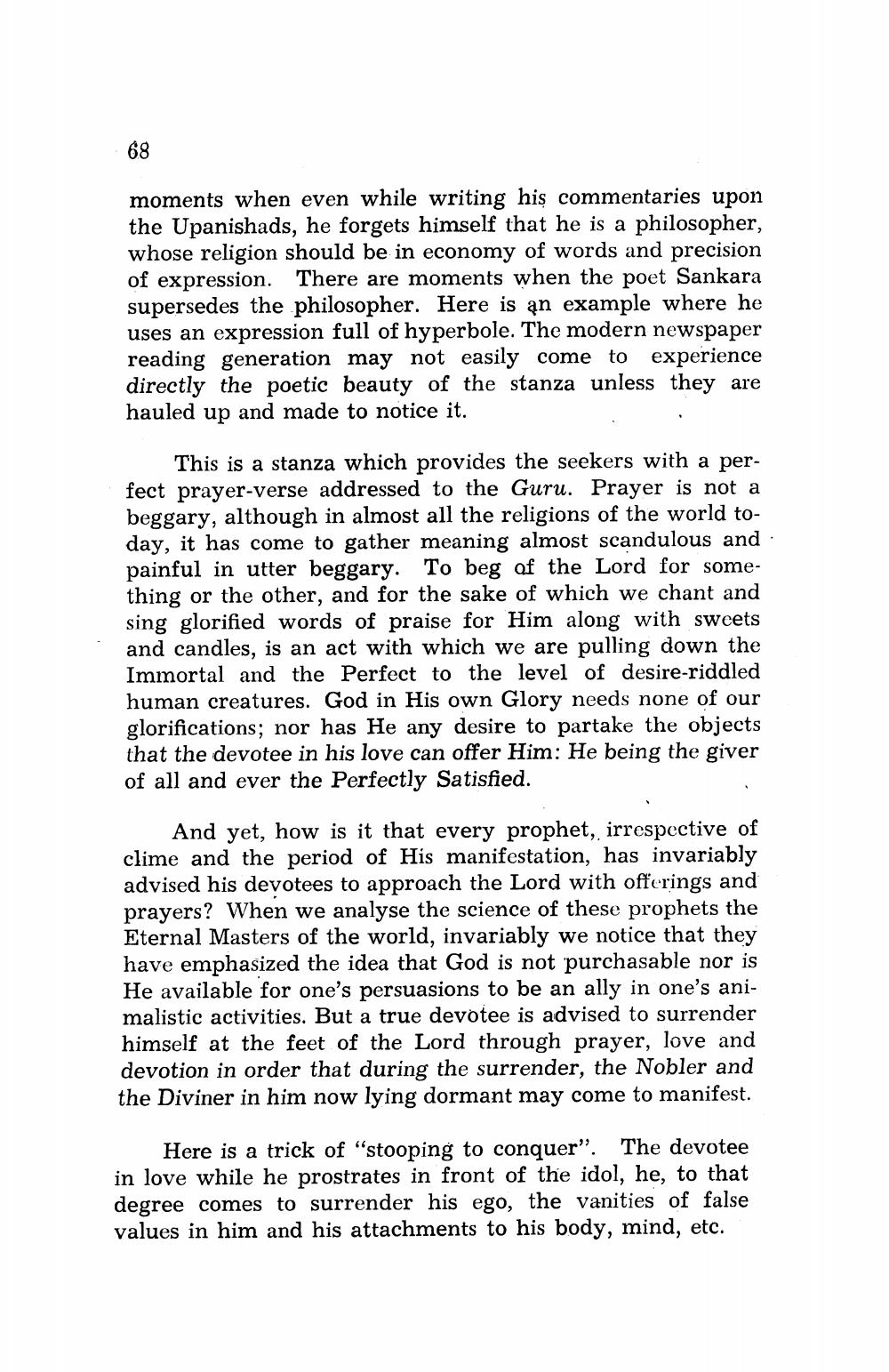________________
68
moments when even while writing his commentaries upon the Upanishads, he forgets himself that he is a philosopher, whose religion should be in economy of words and precision of expression. There are moments when the poet Sankara supersedes the philosopher. Here is an example where he uses an expression full of hyperbole. The modern newspaper reading generation may not easily come to experience directly the poetic beauty of the stanza unless they are hauled up and made to notice it.
This is a stanza which provides the seekers with a perfect prayer-verse addressed to the Guru. Prayer is not a beggary, although in almost all the religions of the world today, it has come to gather meaning almost scandulous and · painful in utter beggary. To beg of the Lord for something or the other, and for the sake of which we chant and sing glorified words of praise for Him along with sweets and candles, is an act with which we are pulling down the Immortal and the Perfect to the level of desire-riddled human creatures. God in His own Glory needs none of our glorifications; nor has He any desire to partake the objects that the devotee in his love can offer Him: He being the giver of all and ever the Perfectly satisfied.
And yet, how is it that every prophet, irrespective of clime and the period of His manifestation, has invariably advised his devotees to approach the Lord with offerings and prayers? When we analyse the science of these prophets the Eternal Masters of the world, invariably we notice that they have emphasized the idea that God is not purchasable nor is He available for one's persuasions to be an ally in one's animalistic activities. But a true devotee is advised to surrender himself at the feet of the Lord through prayer, love and devotion in order that during the surrender, the Nobler and the Diviner in him now lying dormant may come to manifest.
Here is a trick of "stooping to conquer". The devotee in love while he prostrates in front of the idol, he, to that degree comes to surrender his ego, the vanities of false values in him and his attachments to his body, mind, etc.




